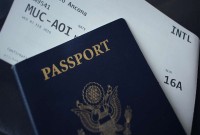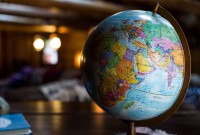- Home
- Business Processes
- Industry Knowledge
- Aerospace Industry
- Automotive Industry
- Banking Domain
- BFSI Industry
- Consumer/ FMCG Industry
- Chemicals Industry
- Engineering & Construction
- Energy Industry
- Education Domain
- Finance Domain
- Hospitality Domain
- Healthcare Industry
- Insurance Domain
- Retail Industry
- Travel and Tourism Domain
- Telecom Industry
- Leadership Skills
- eLearning
- Home
- Industry Knowledge
- Travel and Tourism Domain
- Social & Cultural Impact of Tourism
Social & Cultural Impact of Tourism
Tourism may have different effects on the social and cultural aspects of life in a particular region depending on the strengths of the region. The effect can be positive or negative. Tours also focus on unique natural or geographical features like the coastline, islands, mountains, health resorts, countryside, etc. At such locations, the provision of tourist services and the pressure of tourists are bound to have impacts on the environment, economy, and local social practices and on the people.
Tours can be within national boundaries or in any place in the world. Such a decision will have an impact on the economy of both, the country of origin and the tourist’s destination site.
Social and cultural consequences of tourism originate from the ‘encounter’ or ‘contact’ with the tourist. To understand this we need to have an understanding of the role of the tourist, the host, and the encounter; awareness of the importance of the concept of the demonstration effect; an understanding of the consequences of tourism for host societies; and an awareness of the process and result of cultural change brought about by tourism.
As tourism reaches out to ever more distant and exotic locations, often in lesser-developed countries, the consequences of visitation upon the host community and their culture has become an important issue. Tourism can support community economically through employment, spending, and infrastructure development but also bring less desirable consequences for host communities, prompting both social and cultural changes within those societies.
Reasons for Social & Cultural Impact
- The contrast between affluent tourists and residents in the poorer countries of the world can be startling in terms of behavior, language, and culture – contrasts that can lead to significant and irreversible, changes in the host society.
- Tourists bring back new cuisines and customs, which are slowly adopted
- Societies and cultures are constantly evolving and often tourism can be a scapegoat for the inevitable change that would have occurred without tourism
- Tourists are strangers in the destination, their behavior, language, and way of dress are often significantly different from the host leading to the idea of social or cultural distance. This means that whilst the tourist can act as a catalyst for change in the host society, the tourists themselves are vulnerable to crime and exploitation, simply by their status as strangers who are less aware of local behavior and habits
Positive Social & Cultural Impact
To boost tourism huge money is invested to preserve the local heritage, to improve infrastructure, to provide better local facilities which in turn creates better education, better leisure facilities, organizing frequent social events and thus a better lifestyle for the locale people. They interact with the tourists; mix with people from diverse backgrounds which create a cosmopolitan culture in the region. Due to the demand for better services, varied employment opportunities are created within the region and therefore people do not feel the need to migrate to other cities to earn their living. Given below is some positive impact of tourism:
- Where tourism is developed, it acts as a magnet for employment, often attracting the young and female from the rural hinterland to work in the resorts
- Leads to rural depopulation and by giving females economic independence
- Awareness and recognition of the destination is enhanced and both the locals and the industry will be exposed to ideas from other countries and international good practice

Negative Social & Cultural Impact
Due to the heavy traffic in the region, the infrastructure may not be able to cope with the increased rush thus leading to overcrowding, poor sanitation which may further lead to diseases bot to the tourists as well as local people. The intrusion of outsiders in the area may disturb the local culture and create unrest among the people. The local people may copy the lifestyles of tourists through the demonstration effect and the result could be the loss of native customs and traditions. Some people may enter into criminal activities to fetch easy money from tourists who lead to increased crime and anti-social activities and loss of moral and religious values. Given below are some negative impacts of tourism:
- Has the effect of diverting labor from the land, and from more traditional craft-based enterprises, threatening their existence
- Impact on the quality of jobs and seasonality
- Local people may be relocated to make space for tourism development
- The danger of economically powerful groups emerging and the balance of power can shift from local decision-makers to national and international players
- Decisions relating to the development, marketing, and promotion of the destination will not be made locally
- Inflated prices in the shops and high land or property prices
- Tourism has been associated with low moral standards including prostitution, crime, and gambling, although of course tourism is an easy target to blame here
Related Links
You May Also Like
-
Components of Tourism Industry
The tourism sector is a range of businesses and organizations involved in delivering the tourism product. All the elements of tourism are related and interact; in essence, the tourism industry is a system of customers and suppliers who demand and supply tourism products and services. In relation to tourism, very often you will come across terms like tourism products and services. These components of travel and tourism can be broadly divided into six key areas highlighted below.
-
Social & Cultural Impact of Tourism
Tourism may have different effects on the social and cultural aspects of life in a particular region depending on the strengths of the region. The effect can be positive or negative. Tours also focus on unique natural or geographical features like the coastline, islands, mountains, health resorts, countryside, etc. At such locations, the provision of tourist services and the pressure of tourists are bound to have impacts on the environment, economy, and local social practices and on the people.
-
Wealthy people have always traveled to distant parts of the world, to see great buildings, works of art, learn new languages, and experience new cultures, and to taste different cuisines. There has been an up-trend in tourism over the last few decades and now national or international travel for short breaks is very common. Tourists have a wide range of budgets and tastes, and a wide variety of resorts and hotels have been developed to cater for them.
-
Environmental Impact of Tourism Industry
The environment is the surrounding atmosphere or condition for existence. The impact of tourism on the environment is both positive and negative. This article considers the major issue of the consequences of tourism for the environment. This is a complex area as, whilst tourism is dependent upon environmental quality to attract and support visitors, it also can have a detrimental effect upon those very environments – and their climate.
-
Overview of Hospitality Industry
Hospitality is the act of kindness in welcoming and looking after the basic needs of customers. The hospitality industry is a broad group of businesses that provide services to customers. The industry can be broken down into three basic areas: accommodations, food and beverage, and travel and tourism. Hospitality is actually one facet of the service industry. It primarily involves addressing customer satisfaction and catering to the needs of guests.
-
Challenges in the Tourism Industry
Top challenges confronting tourism are taxation, travel marketing, infrastructure issues, and security and cross border regulations. Too many tourism destinations are not prepared for visitors. Tourists or travelers can at times deem travel marketing to be exaggerated. Another major challenge that the tourism industry faces is the fluctuating rates and cost inflation. New challenges seem to arise quickly impacting the industry as a whole.
-
Economic Impact of Tourism Industry
The tourism industry has contributed to the economic growth of a country through factors like industrialization, education, advanced technology, a higher number of qualified professionals, opening up of foreign markets, liberal trade policies, and better advertising and strategic marketing. The income generated helps the national balance of payments, earning revenue through direct taxation, as well as from indirect taxes on goods and services purchased by the tourists.
-
We all travel and have been a tourist, perhaps many times in our life. Tourism and tourist are so common words that they find mention in newspapers and magazines almost on a daily basis. In spite of its popularity, have you ever deliberated what the definition of travel and tourism is? What components constitute the tourism industry? Who qualifies to be called a tourist? Well, this article attempts to explore the words "travel”, “tourism” and "tourist'- both technically as well as conceptually.
-
How does Tourism Industry impact a country? The impact of the tourism industry can be classified into the social & cultural impact, economic impact, and environmental impact. Social & cultural impact signifies the impact which it creates in terms of social changes. The economic impact can be quantified in terms of monetary benefits and overall economic development of the society. Environmental impact refers to the impact on nature and the surrounding areas.
Explore Our Free Training Articles or
Sign Up to Start With Our eLearning Courses

About Us
Learning
© 2023 TechnoFunc, All Rights Reserved









